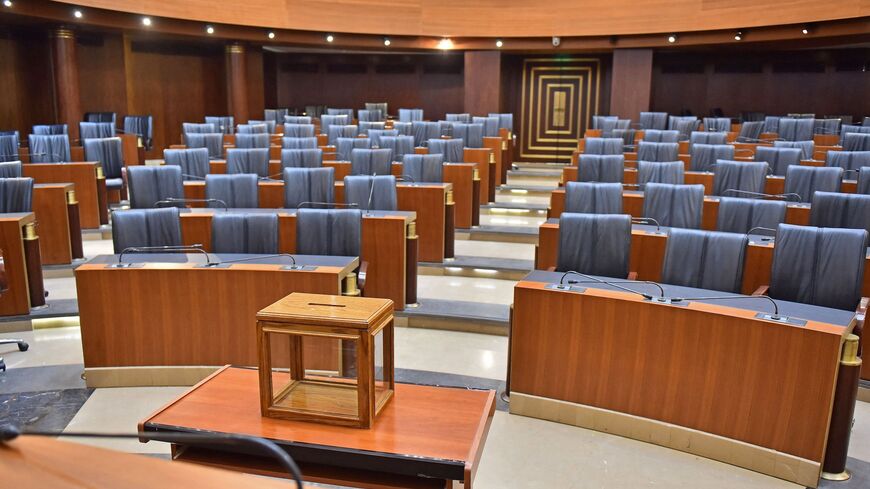BEIRUT — Lebanon faces yet another vacancy in the country’s top posts after the cabinet failed to meet to elect a successor to the central bank governor, whose term ends on Monday.
The small Mediterranean country is in the throes of a debilitating economic crisis compounded by a political deadlock that has left the country without a president for nine months now.
The heavily divided parliament has failed more than 12 times to elect a new head of state since former President Michel Aoun’s term ended in October 2022. Since then, the country has been run by a caretaker government with limited powers, headed by Prime Minister Najib Mikati. Major political parties have argued that the current government is taking on presidential powers in tasks like naming a new central bank governor. Mikati’s government was formally dismissed by Aoun before his term ended last October. Under Lebanon’s power-sharing system, the central bank governor is appointed jointly by the president of the republic and an active cabinet. But with a caretaker government, and a vacancy in the presidency, such an appointment is now unlikely.
The local news outlet L’Orient Today reported that ministers from the Christian Marada Movement and the Free Patriotic Movement as well as from the Shiite Hezbollah movement boycotted a Thursday cabinet session that had been scheduled by Mikati and parliament speaker Nabih Berri to appoint a successor to Riad Salameh as head of the central bank. The session was thus canceled for lack of quorum.
Salameh, who has held his post since 1993, has repeatedly said he does not intend to extend his tenure. In a Wednesday interview with local broadcaster LBCI, the 72-year-old official reiterated his intention to leave office when his term expires next week.
Salameh is the subject of several probes at home and abroad over his alleged involvement in a series of financial crimes. Many Lebanese blame him and his financial policies for Lebanon’s economic collapse in October 2019.
“I believe that during these 30 years, there were 27 of them when the Central Bank contributed with its monetary policies to establishing economic stability and development,” he said, adding that he was being made a “scapegoat” for Lebanon’s economic woes.
In case of vacancy, the central bank’s first Vice Governor Wassim Mansouri is named to replace the former governor. However, all four of the bank’s vice governors have threatened to collectively resign if no governor is appointed before the end of Salameh’s term, as they fear being held responsible for the crisis. Such a move would have dangerous repercussions, according to analysts, as the country is already facing one of its worst economic crises in decades.
The political paralysis is also threatening the country’s military establishment. There are concerns about an army leadership vacuum after commander Joseph Aoun retires in January 2024 amid the ongoing dispute over the prerogatives of the caretaker government in the absence of a president.
Earlier this year, the security establishment was also in limbo in the days leading up to the retirement of General Security head Maj. Gen. Abbas Ibrahim. Several political parties had opposed the extension of Ibrahim’s term, also arguing that the caretaker government does not wield that power. After Ibrahim left office in early March, the cabinet approved the appointment of Maj. Gen. Elias Baissari to serve as interim director of General Security until a new president is elected and a functional government is formed.
French envoy assigned to Saudi Arabia
Meanwhile, international and regional efforts are continuing for a breakthrough in Lebanon’s presidential file.
French President Emmanuel Macron's special envoy for Lebanon Jean-Yves Le Drian was in Beirut this week meeting with officials and rival parties in a bid to break the deadlock. Le Drian has informed the country’s political parties that he will return to Beirut in September for consultations on the next president’s program. After that, discussions will be held to choose a candidate that has the qualifications to implement this program.
Le Drian’s visit, the second in a month, comes after he met with Saudi Foreign Ministry Prince Faisal bin Farhan in Jeddah last week. The meeting came one day after a five-way meeting between representatives from Egypt, France, Qatar, Saudi Arabia and the United States in Doha to discuss the crisis in Lebanon.
Congratulations to @JY_LeDrian, new President of the French Agency for the Development of AlUla @AF_ALULA. Glad to work with him to strengthen the exceptional 🇫🇷🤝🇸🇦 partnership to make #AlUla, a jewel of humanity, a model of sustainable tourism in the 21st century.#FranceKSA pic.twitter.com/MkIswjzcvi
— Ludovic Pouille (@ludovic_pouille) July 27, 2023
As the French official wrapped up his visit to Beirut on Thursday, the French government announced the appointment of Le Drian as president of the French Agency for the Development of al-Ula. In his new position, he will work with Saudi authorities to promote and develop the city, Saudi Arabia's first UNESCO world heritage site.
Editor's note: this article was updated on June 28, 2023 to clarify the rules of appointing a central bank governor.








